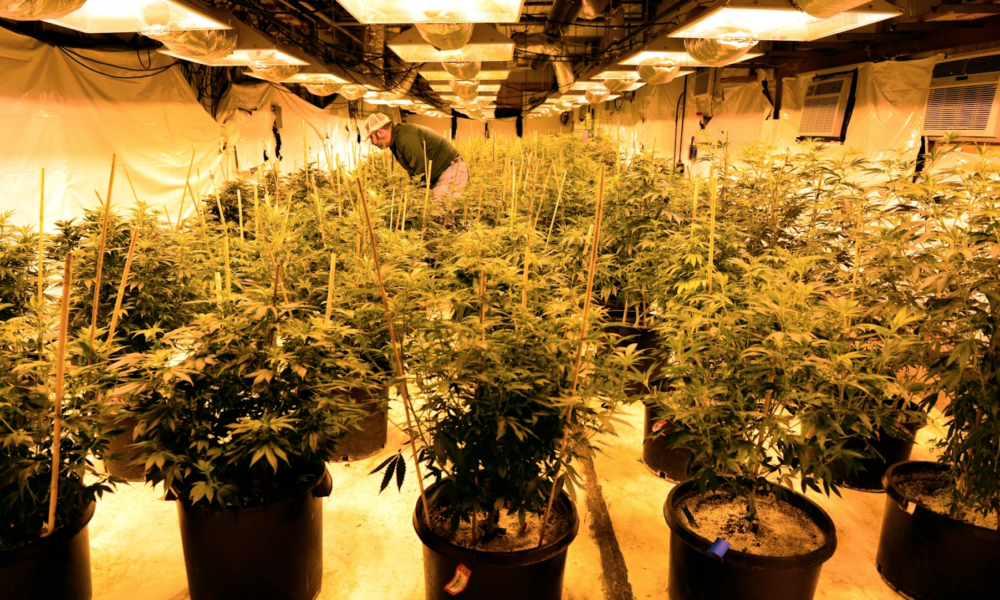International
Legal marijuana, but Uruguayans still prefer black market

AFP | Andrea Figueras Ariso
Uruguay was a pioneer in the legalization of recreational cannabis use, a move that helped to push many drug traffickers out of the domestic market.
But a bland and insufficient state supply has meant most consumers still prefer the diversity of the black market.
In 2013, Uruguay became the first country in the world to legalize recreational marijuana use — which came into effect four years later — even permitting its sale in pharmacies.
There are three legal ways for registered users to get hold of marijuana: purchasing it at pharmacies, through home growing for personal use, and by belonging to an official cannabis-producing club.
The most sought after legal method is membership of one of the 249 consumer clubs, which offer a greater variety to their 7,166 members than pharmacies do.
But many clubs have long waiting lists to join as they are limited by law to between 15 and 45 members.
Pulla, the treasurer and technical manager of a cannabis club in Montevideo — who uses a nickname to avoid falling foul of the ban on promoting cannabis use — explained that the waiting list “is an indicator that demand is not satisfied.”
“Many more people want to access the legal market who still cannot,” he said.
There are just over 14,000 registered home growers and another 49,600 people are registered to purchase marijuana at one of the country’s 28 approved pharmacies at around $10 for five grams — below the black market rate.
According to a study by the local IRCCA institute that regulates cannabis, only 27 percent of Uruguayan consumers buy their drugs through approved channels, a figure that reaches 39 percent when taking into account sharing with friends.
‘Main objectives met’
Joaquin, a cannabis user who purchases on the black market and goes by an alias, explained that one problem with the legal supply is the need to make an appointment at the pharmacy.
The black market is quicker and simpler. You “have a contact, talk to him and in the day, or the next day, coordinate and buy,” he said.
Buying on the black market does not necessarily mean getting involved with dangerous drug traffickers, though.
Organized drug traffickers selling “Paraguayans”, a cheaper quality marijuana imported from nearby Paraguay, represent just 30 percent of the illegal market, says Marcos Baudean, a professor at ORT University and researcher at the Monitor Cannabis project.
“There are many more domestic growers who are simply not registered” but have already overtaken trafficking networks in the sale of cannabis.
In that respect, “the main objective has been met: people can consume cannabis without needing to be linked with criminal organizations,” said Daniel Radio, secretary general of the National Drug Board.
The perception of the illegal market has also changed.
Agus, 28 and using an alias, said she originally registered to buy cannabis from pharmacies but now acquires it on the black market while growing her own plants despite not being registered.
“I don’t see it as the black market,” she said. “It has good prices for what is sold and you don’t feel like you’re making use of drug trafficking.”
There is “a friend or an acquaintance who passes you a contact from someone who has flowers and sells them.”
Some people simply prefer to avoid registering, even though the information is used only for the study of consumption.
Cannabis tourism ‘potential’
“The regulation of cannabis has been more effective than repression in terms of the blow to drug trafficking,” explained Mercedes Ponce de Leon, director of the Cannabis Business Hub, a platform charged with developing the drug’s ecosystem in the country.
However, Radio acknowledges that the black market preference of some users demonstrates limits to the current system.
Radio said users tend to be after a higher percentage of THC — tetrahydrocannabinol, the main psychoactive substance in the drug, which is limited to 10 percent in the pharmacy product — or more variety such as variants that produce different psychoactive effects.
“That conspires against the effectiveness of the system,” said Radio.
The government now plans to increase the THC percentage and offer greater variety in pharmacies by the end of the year to attract more recreational consumers to the formal market.
Legalization, introduced by leftist guerrilla-turned president Jose Mujica, in power from 2010-15, created an industry of medicinal cannabis exports that have brought more than $20 million to Uruguay’s economy since 2019.
Uruguay sells mainly to the United States, Switzerland, Germany, Portugal, Israel, Argentina and Brazil.
Although current center-right President Luis Lacalle Pou insists the legalization move was a mistake, the left-wing opposition wants Uruguay to go even further.
Currently reserved for residents, they want the market to be opened up to tourists.
“It’s a simple formula: if tourism increases, spending increases, employment increases and investments increase. Models like that in California demonstrate the potential” for cannabis tourism, said Eduardo Antonini, an opposition politician and vice-president of the tourism commission in congress.
Other than Uruguay, 15 American states have legalized recreational marijuana use, as well as Canada.
International
DOJ and FBI officially deny Jeffrey Epstein ‘client list’ conspiracy theories
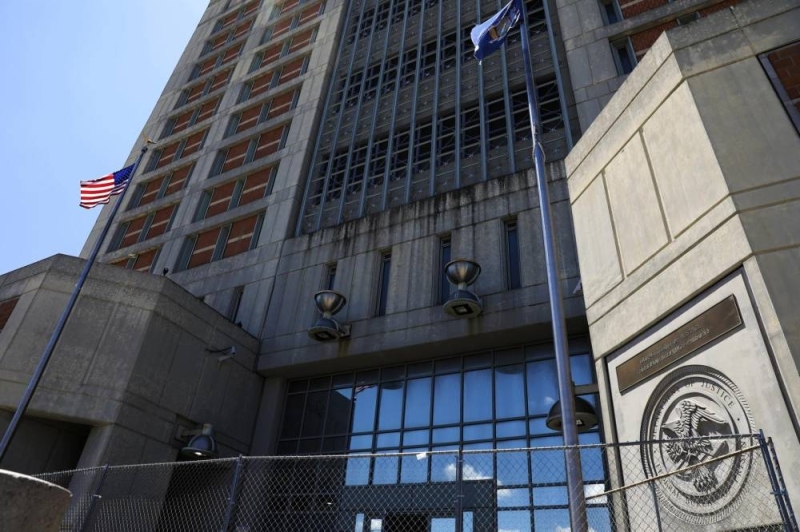
A U.S. Department of Justice (DOJ) and FBI investigation concluded that financier Jeffrey Epstein, accused of sex trafficking minors, did not maintain a “client list” for blackmail purposes and confirmed his death by suicide in a New York prison in 2019, according to reports from U.S. media on Monday.
The findings, detailed in a memo reviewed by Axios and ABC News, mark the first official denial of conspiracy theories alleging a list of influential personalities connected to Epstein and a possible murder to silence him.
The DOJ and FBI also reviewed several hours of video footage confirming that no one entered the area of the Manhattan jail where the 66-year-old billionaire took his own life while awaiting trial on charges of sex trafficking minors, aided by his associate Ghislaine Maxwell, who was prosecuted and convicted of similar crimes.
The evidence review was ordered by the Trump administration after officials like Attorney General Pam Bondi pledged to release files related to the federal government’s investigations into the case.
Epstein’s death prevented the trial from taking place, leading some in American society to demand that the Department of Justice make public the list of accomplices and clients, as well as flight logs of his private plane to the island he owned in the Virgin Islands, where some abuses reportedly occurred.
The new memo from the U.S. Justice Department warned that it will not release more investigation records and emphasized that one of its main “priorities” is “combating child exploitation and delivering justice to victims.”
“Perpetuating unfounded theories about Epstein serves none of these purposes,” the document states, according to ABC News.
International
Iranian president says Israel tried to assassinate him, warns U.S. against war
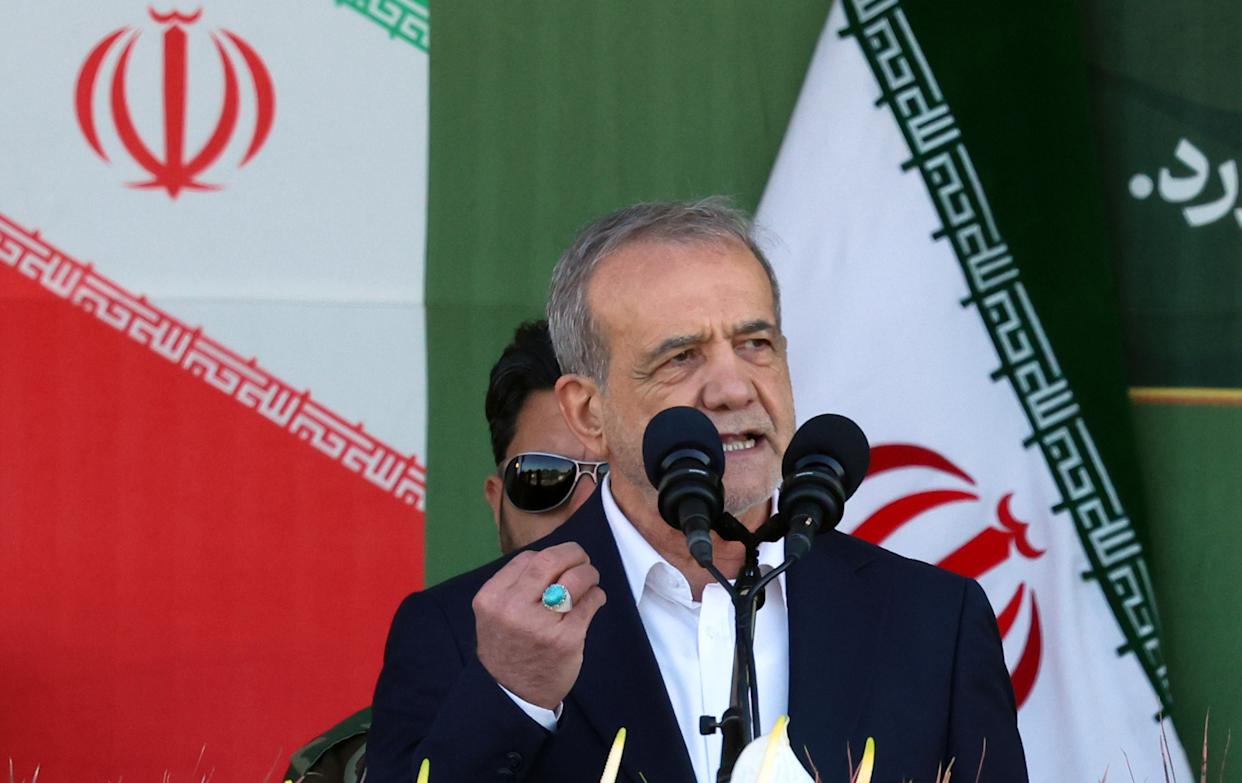
Iranian President Masoud Pezeshkian claims Israel attempted to assassinate him during a high-level meeting, but Iranian intelligence thwarted the plan, he revealed in an exclusive interview — not to a traditional news outlet, but to far-right journalist Tucker Carlson, a close ally of former U.S. President Donald Trump.
The interview was published last night on Carlson’s X account. Carlson anticipates criticism for conducting the interview but defends it by saying Americans need to understand the perspective of a country “we went to war with ten days ago, and maybe will again.”
When Carlson asks if Israel tried to kill him, Pezeshkian replies: “Yes, they tried, and acted accordingly, but they failed.” Asked for details, Pezeshkian explained: “It was during a meeting. We were discussing ways to move forward, but thanks to intelligence services and their clues, we knew they tried to bomb the area where we were gathered.”
He quickly clarified: “Of course, it was not the United States trying to end my life, it was Israel (…) I ask the U.S. not to be deceived by Netanyahu, not to be dragged into this kind of war,” a warning he repeats throughout the half-hour interview.
Relaxed in a chair, Pezeshkian answered all questions. On whether he will allow the return of International Atomic Energy Agency (IAEA) inspectors — after suspending cooperation last week — he said it is not ruled out but currently technically impossible.
“We have never been the ones to withdraw from inspections. We are ready to undergo those verifications, but unfortunately, due to illegal U.S. attacks on our nuclear sites and facilities, many parts and equipment have been severely damaged. So now we don’t have access to them,” he explained.
It is notable that Iran granted this interview to Carlson, a well-known isolationist within the Trump sphere, who, alongside ideologue Steve Bannon, opposes U.S. involvement in foreign wars that come at high economic, political, and human costs.
Carlson asked if Iran planned to assassinate Donald Trump or if it has “sleeper cells” ready to attack on U.S. soil. Pezeshkian dismissed both claims lightly: “That’s what Netanyahu wants you, the president of your country, to believe, but it’s false because Netanyahu has his own agenda—to push the U.S. into an endless war.”
International
Sheinbaum urges unity and respect after clashes over gentrification in Mexico City
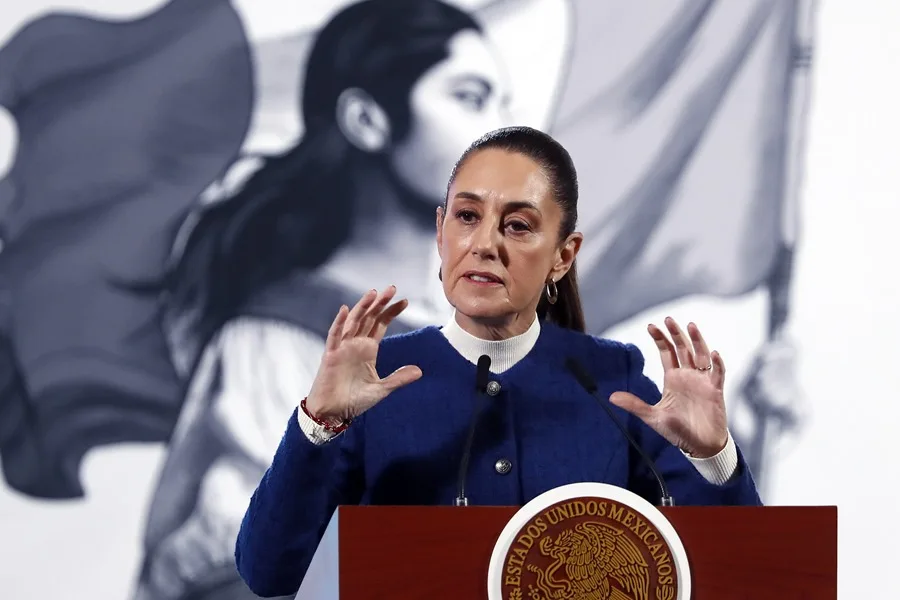
Mexican President Claudia Sheinbaum addressed the protests in Mexico City on Monday, which erupted over the weekend amid complaints of gentrification and urban inequality.
The demonstrations took place in the Condesa neighborhood, where protesters claim rising rents driven by an influx of foreigners have altered the daily lives of longtime local residents.
However, the protests escalated into clashes with local police and included discriminatory remarks toward officers and citizens.
In a strong message, Sheinbaum condemned hate speech and urged citizens to reject all forms of discrimination. “All Mexicans must clearly reject discrimination — no to racism, no to classism, no to xenophobia, no to machismo, no to discrimination. All human beings are equal and no one should be treated as less. (…) Discrimination is also a criminal offense.”
“Any man or woman who wants to live in Mexico City or anywhere in our country must respect us just as we must respect them. But these attitudes are not exclusive to foreigners living in Mexico, we also saw them in many marches last year,” the president added.
Regarding the violent incidents shared on social media, Sheinbaum said: “Gentrification is a phenomenon that must be addressed, but xenophobic behavior cannot be justified. That’s unacceptable. Anyone who comes to live in our country will be welcomed as long as they respect the laws, the rules, and appreciate the wonderful people of Mexico.”
She also highlighted Mexico’s long-standing tradition as an open and supportive country that has welcomed refugees and migrants from various nationalities during critical moments in the 20th century.
-
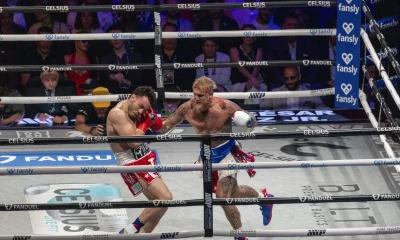
 International4 days ago
International4 days agoJulio César Chávez Jr. faces charges in Mexico after U.S. arrest
-

 International4 days ago
International4 days agoMexico’s president blasts ‘Inhumane’ U.S. migration law
-
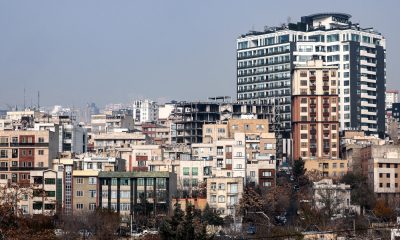
 International5 days ago
International5 days agoTehran airports resume operations as Iran lifts airspace closure
-
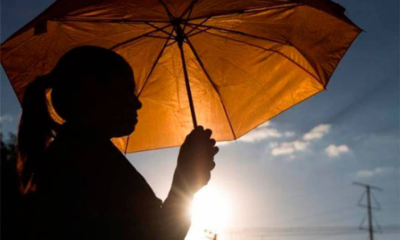
 International4 days ago
International4 days agoEurope faces a summer of heatwaves and wildfires, Red Cross warns
-

 International4 days ago
International4 days agoDenmark takes Trump’s Greenland threats seriously, rules out military annexation
-

 International5 days ago
International5 days agoMan attacks passengers with axe on german ICE Train
-

 International2 days ago
International2 days agoSalvadoran Day USA 2025 canceled amid fears of immigration raids
-

 International2 days ago
International2 days agoTexas Floods: Death toll rises to 68, dozens still missing
-
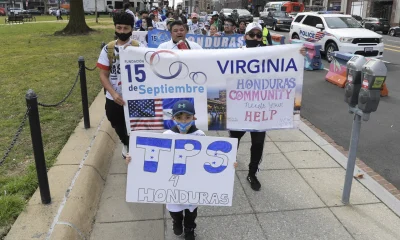
 International19 hours ago
International19 hours agoHonduras regrets U.S. decision to end TPS for 72,000 hondurans
-

 International19 hours ago
International19 hours agoIranian president says Israel tried to assassinate him, warns U.S. against war
-

 International19 hours ago
International19 hours agoGunman killed after shooting outside Texas Border Patrol Building
-
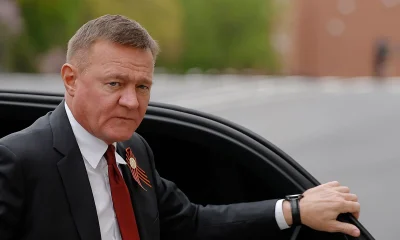
 International19 hours ago
International19 hours agoRussian ex-transport minister found dead after dismissal by Putin
-

 International19 hours ago
International19 hours agoBolsonaro thanks Trump for support amid Brazil coup trial
-

 International19 hours ago
International19 hours agoSheinbaum urges unity and respect after clashes over gentrification in Mexico City
-
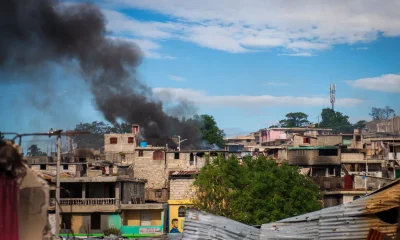
 International20 hours ago
International20 hours agoTrump ends TPS for haitians as gang violence surges in homeland
-
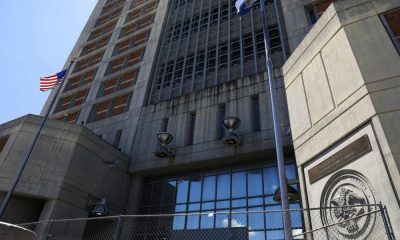
 International19 hours ago
International19 hours agoDOJ and FBI officially deny Jeffrey Epstein ‘client list’ conspiracy theories










